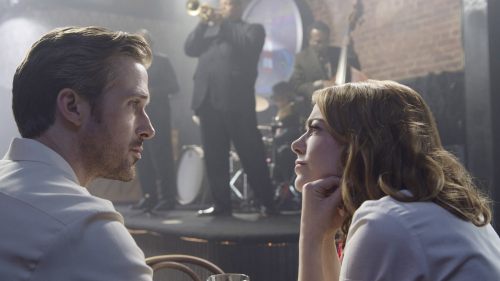Why It Matters: Jazz
I wouldn't blame anyone for thinking they dislike jazz music. The word conjures up dark associations of slap-bass, goatees, Cosby sweaters and scotch-drinking douchebags talking about how much they love 'Trane and Miles. Even if you are fortunate enough to break through and find the good stuff, it requires careful attention and real listening and maybe you just don't have the time or the inclination. That's fine. You can skip the whole thing and you'll probably never know what you're missing.
But if you're up to it, it might enhance your quality of life, make you a better, smarter person and teach you a lot about how thoughts and expression work. It can show you how the process of genius works and expose you to new depths of cognition and joy. If you listen hard enough with an open mind and heart you can even understand something of Africa and appreciate that which is specifically African in us and our culture.
Jazz is not background music. There is a lot of background music in jazz bins, but it is not really jazz. Generally "smooth jazz" is just muzak. There are many kinds of jazz music. Some is sweet and mellifluous and some is wrenching and atonal but it speaks to us and we have to listen to it to understand it. It's conversational. If the subject being discussed is love, the melodies and harmonies may be sweet and lovely to hear - and certainly in the playing of a Johnny Hodges or Ben Webster it is. If the subject under discussion is the viciousness and insanity of the culture we have settled for, we should expect the tone and content of the solos to reflect it - think Albert Ayler or Archie Shepp. If the "speaker" has a perverse sense of humor we might expect the sort of advanced deconstructive play of a Lester Young or a Thelonious Monk. The very short history of recorded jazz has provided us with a virtual academy of great geniuses we can think along with.
Listening to jazz takes a little preparation. First off, find the good stuff - that probably means the old stuff. There are so many eminent figures in the field and there are so many genuinely classic recordings. One collection that puts together many important masters from many different record labels is Martin Williams' 5 CD set The Smithsonian Collection Of Classic Jazz. Of course there are notable omissions and it only covers the period of greatest ferment, but there are no bad selections and the music and the extensive, outstanding liner notes will set you on the path to understanding the meaning of it all.
Next, get some good speakers. You can listen to jazz on headphones but ideally it should be heard and felt pretty loud. The acoustic bass has been an important sonic element in jazz for most of its lifespan and it's difficult to hear the subtleties of the instrument through headphones or shitty speakers.
The next step is wholly optional, but I do recommend it. Smoke marijuana. Ok, hear me out on this one. The great majority of this music was made under its influence, whether directly or as part of the creative culture of its makers and audiences. The mechanism by which it makes music better is disputed and unclear, but there are enough direct and indirect citations on the record as well as an abundance of personal and anecdotal evidence here. Naturally you want to be careful as the stuff is still illegal in most places, but the small additional thrill you may derive from breaking the law is entirely appropriate for the appreciation of jazz music, which is after all the subversive musical language of minorities.
On to the listening itself. Try just listening - not reading, not checking emails - just listening. Pay close attention to the drums and let the other elements foreground themselves. Soon you may begin to hear a dialogue evolving - soloists restating the theme or even restating the restatements of the other soloists. The harmodic and melodic framework of the song is usually stated straightaway. That's called the "head." Generally the players will play a series of variations on the head and then return to it. Depending on the musicians and the style, they may go pretty far "out there," but usually the "choruses" are different views of the subject as stated in the head. Think of Hiroshige's Thirty Six Views Of Mount Fuji or Warhol's multiplicitous Marilyns.
Sometimes these various views can be so abstract as to be unrecognizable. Though John Coltrane is of course one of the greatest and most famous names in jazz, many of his later works are probably not for general consumption. I treasure the image of some rat pack romeo trying to woo his date to the sounds of Coltrane's Ascension or Meditations. If you love the music you'll come around to them, but it's a little like starting the study of the 20th Century Novel with Finnegan's Wake.
As you listen more you may begin to hear the intelligence and wit in the music. Often it is front and center. Sometimes unfortunately, we miss out on some of the complexity - perhaps an embedded parody of another musician's style or a sly quote of a popular song goes unrecognized - but subtext, even unrecognized subtext, creates depth. When Thelonious Monk essays a Duke Ellington composition sparks fly from the collision of these two great intellects and though we can't fathom the depths of Monk's mind (it's okay, his contemporaries couldn't either), he's saying something. And he's saying it with such beauty and precarious grace that we can't help perceiving its many shades and planes.
Jazz music is where many of the greatest minds and hearts of the 20th century lived and worked. Recorded jazz is a repository of their intellects and the traditions they carried forward from many thousands of years of African thought and many subsequent generations of cross-pollination with the many other hybrid American musical forms. Though jazz is now partially hidden underneath the noise of fake jazz and a number of unfortunate cultural associations, it's a very great treasure and one worth uncovering.


